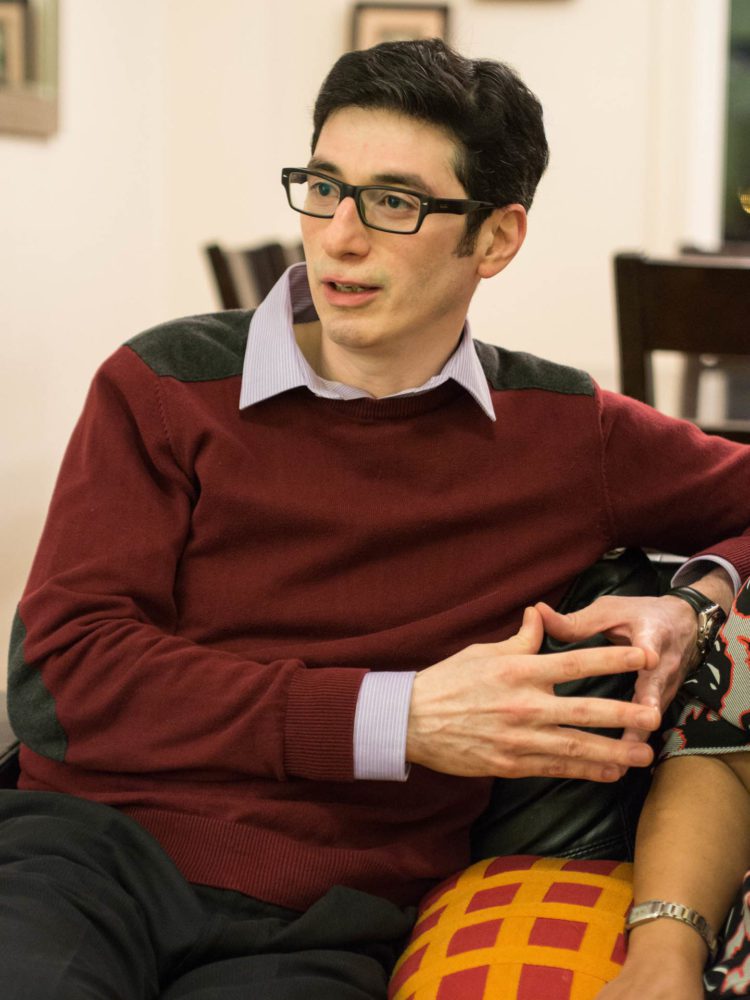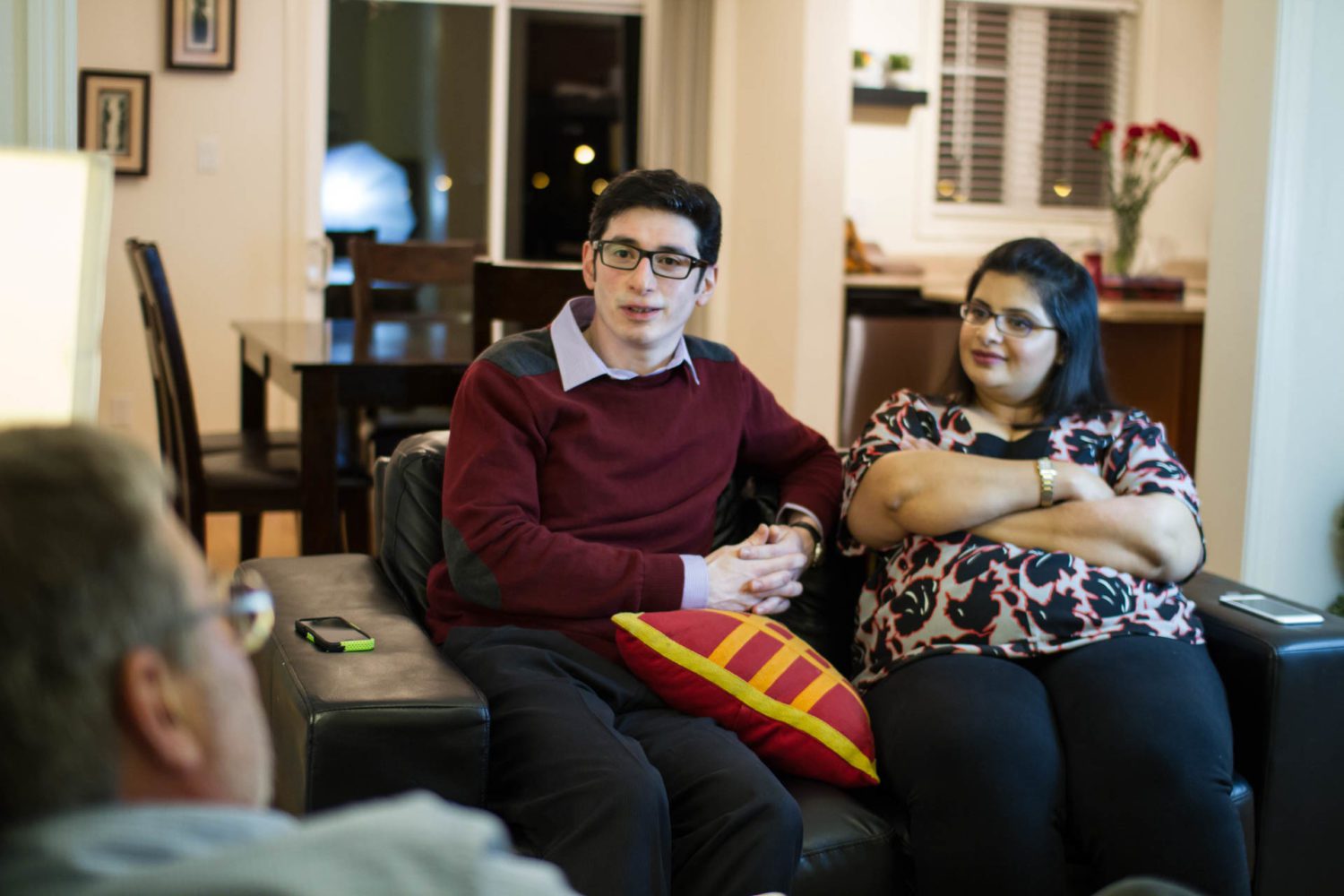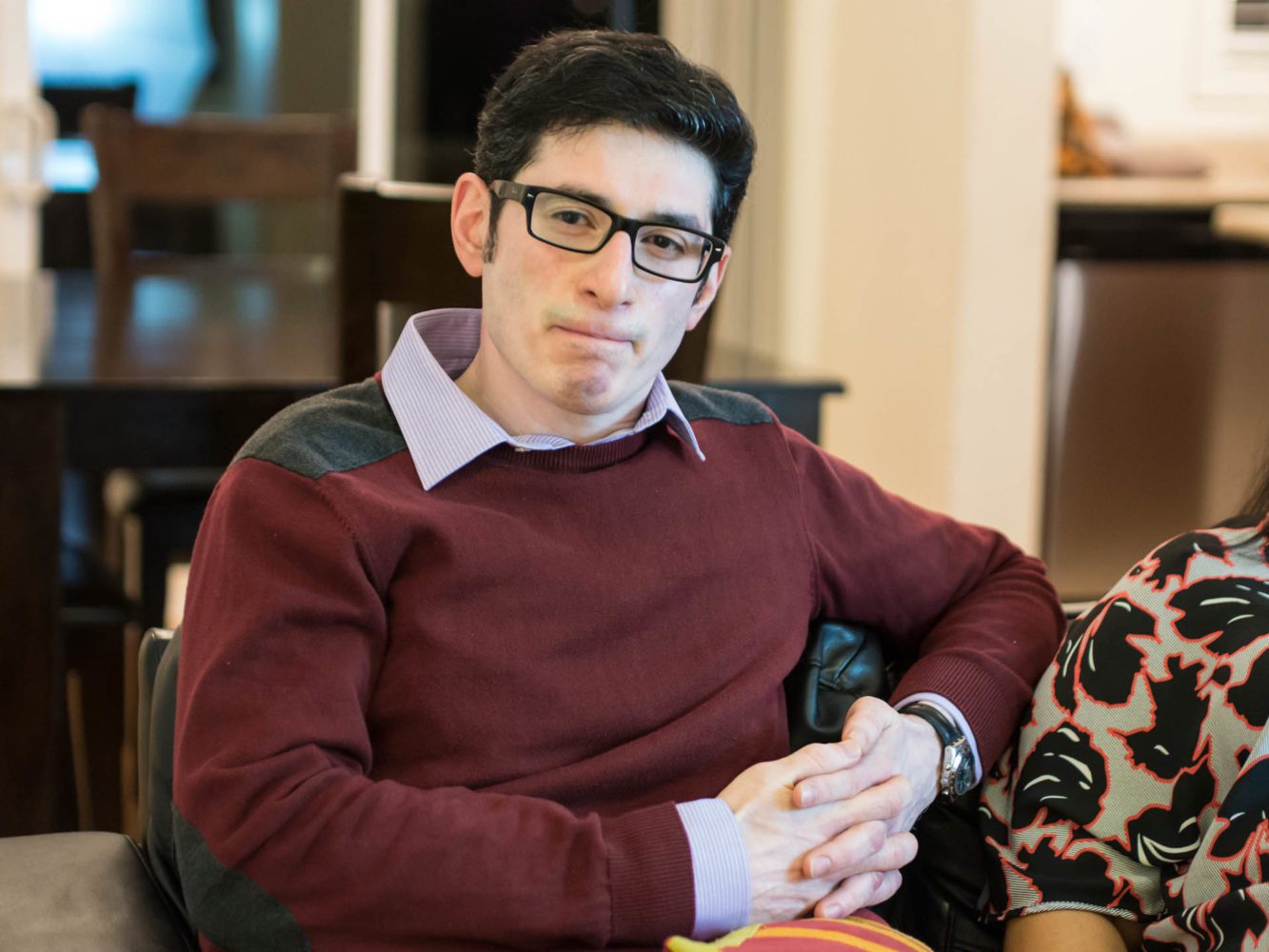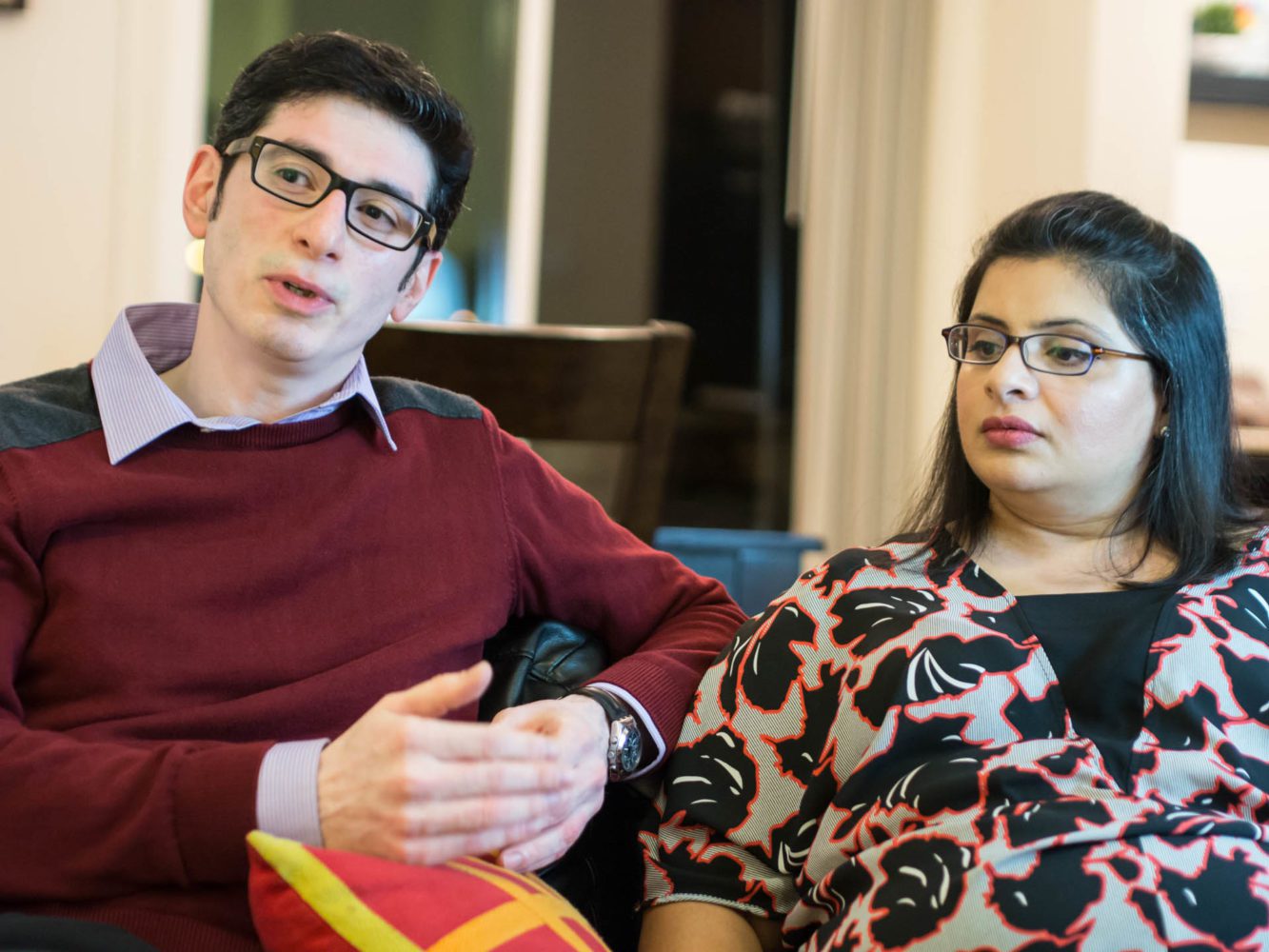Zeeshan’s mother lost her mobility and speech after brain surgery to remove a benign tumour. Her recovery in rehab was disrupted by fevers and infections that led to her being repeatedly transferred to acute care. Zeeshan and his wife Sohni tell the story.
“My mother had a benign brain tumour called a meningioma which started to cause her trouble walking. It was decided that she should have surgery to remove it. We knew that after surgery she would be transferred to a rehab facility.”
We were hoping and expecting that things would go smoothly, although we had been told there was an outside chance of things not happening the way they were supposed to.
“But we didn’t really think of those things. We thought of the good stuff that was going to happen once the meningioma was removed.”
“Unfortunately, things weren’t straightforward. Mom had a series of fevers, infections and an episode of severe confusion that meant she was transferred back and forth between the rehab facility and acute care hospitals five times in the two months after surgery.”

“After surgery mom lost her ability to walk and wasn’t able to use her left hand. At the beginning, things at the rehab facility looked very positive. Within a week to 10 days, with physiotherapy and other treatments, she started getting use of her left hand, she could sit by herself and take a step to sit in the wheelchair. Her speech improved from being very difficult to understand after surgery, to talking in a way that close family could understand. Her feeding tube came out. She was on a really good path to recovery until the first visit to the hospital.”
“The first time she was sent to a hospital it wasn’t to the hospital where she had her surgery. That was a surprise to me, but the paramedics said that she would be seen more quickly at another hospital.”
“It is very important for a family member be with the patient in the emergency department. Even in the hospital where my mom had her surgery, we had to provide all the details of what she had gone through, including the surgery. Although mom was aware, communication was difficult so everyone – the people speaking to her and my mom – got frustrated.”
Initially we thought, ‘Great, the rehab hospital is going to give them a document with all the details and it’s good to go.’ It’s not that simple. You have to convey the history, you have to paint a picture, you have to tell them what she went through in the surgery, what happened at rehab, etc.
“Simple things like what medications she was on, and when she took her last dose of antibiotics. I am sure it was somewhere in the records but I guess it wasn’t easily accessible. In the emergency department everyone is so busy that it is much easier for staff to get an overview from the family member rather than to go through six to 10 pages of documents.”

“One thing that really suffered when mom was admitted to the acute hospitals was her rehab. In the hospitals she would get a bit of physio, but at the rehab facility she was getting both physio and occupational therapy twice a day, and speech language therapy once a week. So, all the positive steps she had taken in the rehab hospital were lost.”
“Except for one time, Mom was always transported to the acute hospitals after nine in the evening. The nurses in rehab were pretty up front with us. They simply didn’t have the staff at night. They said it was best for her to be in a place where they could watch her more closely than they could. When we got the call from the nurses in the night they would say. ‘She is fine. Don’t worry, it’s just a slight fever. But because we are not well equipped we are making the move. In all probability she will be moved back in the morning. They might not keep her.’ But the moves in the middle of the night messed mom up. She didn’t get her rest, which added to her confusion and tiredness, and made her more agitated.”
“The moves were terrible on us too. One of us had to go to the emergency department each time. On a good day the drive takes one hour. At a bad time it can be two hours plus. I needed to take time off work, we had to make arrangements for the kids, the whole package.”
“And a lot of health care resources are used up moving somebody back and forth. From the emergency department’s perspective, a temperature of 38 isn’t an emergency.”
All of this could have been avoided if intensive rehab was offered at the hospital where Mom had her surgery. Mom would have been much better off, and so would we.

“The worst time to be in the emergency department is on the long weekend. There was visibly less staff. When we were having casual conversations with nurses they said they were working on a skeleton staff because it was the long weekend. The other thing is that on weekends there is no rehab at either the acute or rehab hospitals. Which is kind of surprising because you would expect things should not stop on the weekend.”
If we could give a recommendation, it would be that health care on the weekend should not be much different from during the week. When somebody gets ill they don’t choose the date.

“In hindsight there are a few things we’d like to have known before the surgery. We knew she would need rehab but we didn’t know she was going to get it in downtown Toronto. We live in Milton. We were under the impression that we would have something a bit closer where it would be easier for the family.”
“My mother-in-law wants to see one of us every single day, and we have visited her every day. My husband’s sisters were kind enough to come from the UK and Vancouver to help for a few weeks, but when they were gone we were sitting here saying, ‘Okay, now we need babysitting. Now we need to re-look at our finances because I have to make two trips with GO every single day.’ I wasn’t going to be able to look for a job for a little bit.”
“If we were to look at all the factors – distance, quality of rehab, family support, we would much rather have her nearby in Oakville or Credit Valley. But we were never given that choice.”

“Mom’s neurosurgeon has been terrific. Within one visit he formed a connection with her. Mom is the sort of person who has lots of questions and he answered all of them. He put her at ease and explained the pros and cons of different treatment approaches.”
“She felt that she wasn’t just another patient for him. When we were going down the hallway for her pre-op CT scan he saw us from behind and came up and gave her a hug. And he was like, ‘Are you ready for your date with me the day after tomorrow?’ For him to do that gave her lots of reassurance.”
He was away for a conference once when she was moved from the rehab hospital to emerg. I sent him an email at 5:00 in the morning and he replied within, I think, five or 10 minutes. He said he would have one of his on-call colleagues take a look at her. For us having experienced a health care system that sometimes didn’t meet our needs, to have a doctor so approachable was remarkable.
“Actually, through this entire experience the doctors and nurses have been really amazing. It’s so good to see them work those long hours and always be there for the patient. I haven’t had an experience where Mom wasn’t treated well.”


The comments section is closed.